Connor McAdams The pequeños are old. The smile I saw from the pequeños are some of the brightest smiles I have ever seen, but it is important to remember how those smiles got to be so bright. Those smiles are so bright because the faces they are on know and understand darkness. Darkness is a thing that many cultures (especially ours) see as taboo and something not to be spoken about with one another. As our week progressed and the group grew closer I realized something that I'm going to try to take and keep with me, that darkness is not only ok but something to be acknowledged and recognized; because without darkness, as we all know, there can be no light. About midway through the week I took a play from the pequeños’ book and attempted to tell the group about my fight with depression during one of the check-ins, after that check-in I laughed harder and bonded with the rest of the group. This trip reminded me to acknowledge personal struggles in order to achieve future happiness. This trip reminded me that no matter how I feel, my struggles may be simply incomparable to someone else’s. This trip humbled and motivated me – touched and inspired me – exhausted and filled me with gratitude. There is always darkness, and there is always work to be done. The pequeños are old, the pequeños are wise, and the pequeños are not broken.
2 Comments
LISA PHILLIPS One of our group goals for this Mission was confirmation that God is in our midst.
And so, I’ve been noticing the big little things.
DAVIS DELFIN 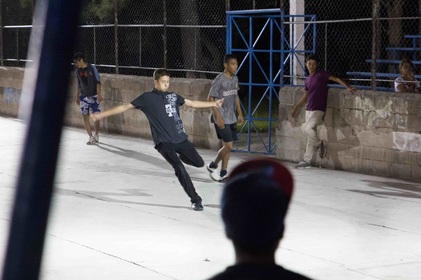 Where do I begin after my last post? There have been so much that has happened in the past three days. Saturday: Amazing! We got to hang out with the kids in the afternoon before the church service. It was quite amazing seeing how much energy these kids have and how awesome they are at the same time. They were amazing kids playing games, especially soccer, and making me silly by pulling nutmegs on me (kicking the ball between my legs). Then came dinner, the best night that has happened on this trip. All of the children came and met at the boy’s house. When I was playing futsal (a smaller version of soccer), I felt a presence by God, telling me I was doing well with these kids. He told me to enjoy what I was doing. I did as he asked and had fun with the kids. They were the best players I have ever played with and had amazing shots on goal. I couldn’t stop every goal when I was in goal. It was a long, hard day and later having a sore body that night, but it was well worth it. Sunday: Crazy! I didn’t know what to do when the day came. There were so many games and so many fun activities. There was handball, baseball, Frisbee, and more games as well. All the games had fun and creativity to them. Of course, I enjoyed any game that involved me being a goalkeeper. I loved handball as I played as the goalkeeper on my team. It was an amazing game and was able to do more than I expected. As lunch time came around, I completely stepped outside my comfort zone. When I walked to the Posa (lake or swimming pool), I walked and saw Madeleine and William all wet hearing that they swam in the Posa. The next thing I knew, I jumped in the pool and joined all my friends in the Posa. Images (from top): Davis taking a shot before
the match began. The boys found a few other Honduran national supporters before the match with Haiti (the boys actually live in New Orleans, but family is here) DERONA BURKHOLDER A little boy from the San Pablo Hogar shouted, ¡Leamos! I thought this was perfect coming from the teacher in me. He leaps up with a look of joy on his face as he raced to grab his favorite book, Curious George. As I opened the book I was anticipating the boy to read to me, but that was not the case. He wanted me to read to him, and it was mainly because he couldn’t read very well. How could this 9 year old boy not read well? This is right at the age I teach.
The education system at NPH in Honduras is something to be desired. Many kids that live outside of NPH don’t attend school. However, the kids at NPH receive an education through middle school. They follow a Montessori program that preps and prepares them to further their education. NPH sends kids to the public high school, university or vocational training in the capitol. One new thing I learned while talking about the education system here is that the government likes to enforce new laws that they feel would make the education system look better than what it really is. The government doesn’t have the kids in mind, especially the many kids who have gone through tough times, like the kids at NPH. So it is no surprise now to see this boy who came to NPH with little to no education. Because he couldn’t read he wanted me to read the dual language Curious George book. I felt very confident reading the English parts, but to read the Spanish, now that was a different story. I struggled so much as I read through the Spanish words, but what I received from the boy was grace and patience. The two qualities that I have with my students as a teacher. It was at this moment that I realized what it must feel like for my students who struggle with their learning. And it was the grace and patience that this boy, my teacher, who pushed me to try even when it was hard. MAGGIE BREEN 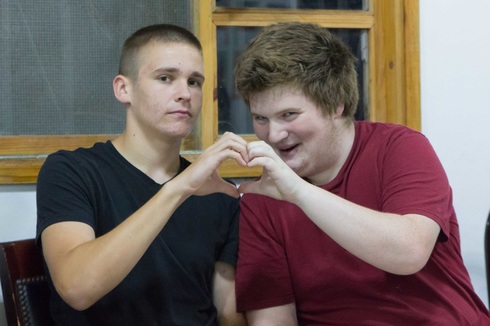 I have heard us say at St Andrew that community means a commitment to being with each other: to spending time, repeated periods of time, in each other's company. This is my second time at NPH Honduras and it is teaching me in new ways the wisdom of this claim. There is a richness to be mined as we return and return again to the company of others: company in which we glimpse promise but which might also feel strange and different and hard. I am seeing things here that I didn't see last time. Last time was three years ago and I was concerned mostly with trying to get my bearings, trying to deal with finding my way around and do things correctly. I got a glimpse last time of a deep and breathtaking love and generosity: a love that wanted me to look up and know I belonged to it. It would come sit beside me, come whisper its promise in the form of a young child who didn't see our cultural differences but would simply run up to me and hold my hand or sit in my lap or want to play a game. But last time, as I experienced this place, this new and different place for the first time, the voice that told me I was an outsider had, I realize now, more of a hold. Thank God, St Andrew decided to come again and I trusted I had to be part of the group.
I am not sure I have the words for it yet but as I return things feel a little more spacious. A sense of safety comes quicker and the desire to be included in the love that is here has more of a command. The love that I glimpsed last time in the way this family takes care of each other and shares itself so generously, so beautifully, is I am realizing with more depth, for me too. I am included. I am loved by the same God that has grown this place of hope. So I don’t know–I guess all I think I am understanding right now is that returning is important. When we have a sense that riches lie in a certain place - be it in churches in which we have glimpsed hope, relationships in which we have glimpsed honest love, service to others through which we have glimpsed compassion and unity, communities in which we have glimpsed the promises of God then it's going to be important to return. We may receive gifts in a fleeting visit and we will be richer for these. And we will certainly encounter the difficulties that come in feeling like an outsider or working through new relationships and differing needs. Despite the promise that we first glimpsed we may not want to return. But returning and returning again provides for the time and the work it needs to be able to look around, to settle in, to breathe and find space, to remember we are safe, and hopefully to know more deeply that the hope, love, compassion, and promise that we first glimpsed is in fact meant for us too. SCOTT ANDERSON 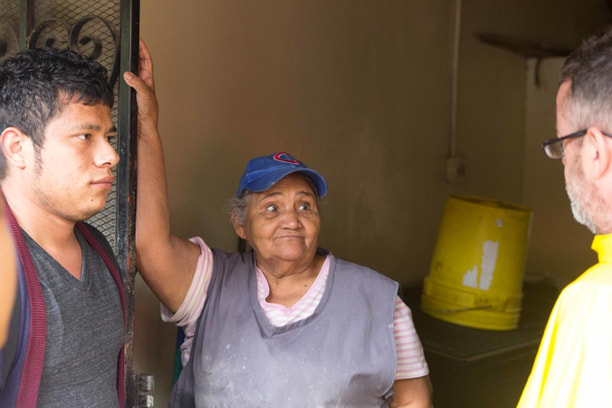 It shouldn’t be a surprise, of course, but to be honest, it shook me a bit. We were touring the grounds Friday. The intermittent rains had let up enough that we had a safe enough window for the two hours or so it would take us, and we had Nelson to guide us. (He promised he would show us all the places he got in trouble, but that didn’t pan out!). Casa Suyapa (the baby house), the shop, the cocina (kitchen)—newly expanded and remodeled since our visit three years ago—and Dona Gloria in the doorway of her tortilla house, the saint of a woman who has made millions and millions of tortillas over the 28 years that she’s cooked for the ranch. Casa Raina, the abuelo house where elderly adults live and become grandmothers and grandfathers for the hundreds of children on the ranch. El Buen Pastor, the Good Shepherd, the boys’ hogares, then the school where a hundred or so of the younger boys and girls were out playing. That’s where it happened. We walked into a swirl of activity. Probably a hundred younger kids playing on the concrete under the covered shelter. It is one of those idyllic images that I’ve grown accustomed to at NPH Honduras. Groups of kids scattered on the hard surface like so many drops of rain, others running, playing. So much energy! Smiles. Laughs. Pure. I was standing there, taking it all in, when two young boys, 9 or 10, I’m guessing, started scrapping. It took me a while to process that they were actually fighting. I mean really fighting. Fists flying. Bodies slamming to the concrete. One boy pulled the other’s shirt over his head and then blows to the body. One after another. I was stunned. I just stood there, frozen. Once I realized what was happening, I began to look around, expecting someone to intervene. Waiting for a tio or tia, an adult caregiver, to run up and separate the two. Finally a pequeña, a girl perhaps two years older came over and tried to separate them, mostly unsuccessfully, the focused rage was such a force. One of the adults from our group stepped in as well, and finally it was over. One boy, the smaller, stormed off. I didn’t see where he went. But the other stayed on the ground. And as the endorphins drained away, the tears welled in his eyes, and he sobbed with that “what just happened?” dismay that is intelligible in any language or with none at all. Of course this happens here at NPH too. Why wouldn’t it? But it is so unexpected. I suppose because I want the dream, the ideal, the Kingdom and it is tempting to ignore the “real” to find it. Of course it happens. This is about being human, about figuring it out, about growing up and sorting out what makes for life and for death and making a choice. We learn by our mistakes. We find our way by getting lost. Of course it happens. And that is what makes this place all the more astonishing. Because there’s room for it, and there is space carved out for reflection on it that molds a soul and a body, a self as one, a whole. NPH gets this and makes intentional space for learning. It’s another one of those things they continue to perfect over years of reflection followed by practice followed by more reflection. After all, those Liberation theologians of Central and Southern America, intent on the Way of Jesus gave us the word: praxis. And not everyone ends up in the same place. Sometimes this is a tragedy. Sometimes kids leave the community. Sometimes they have to. Of course NPH knows this heartbreak. And God knows where these two little boys will be in a few years. I hope right here or somewhere else caring for their little pequeños, breaking up fights, holding crying little boys, and showing them different paths and new possibilities for their lives. The astonishing, lump-in-your-throat thing about NPH is how most of the time they seem to get the Kingdom. There is much for us to learn here. Much for me to learn about growing a community that is intentional in the ways that it gives life, that it nurtures, that it practices goodness, faithfulness, peacemaking, and love. The blows that happen are such a shock because there are so many hugs, and head rubs, and pastors getting on their knees to offer the bread of Life to a little one. There are so many warm, intent, undistracted gazes deep into the eyes of these little ones by these bigger ones. So, all in all, it was a pretty good walk. We didn’t get to see all the places Nelson got into trouble as a little pequeño. But we got Nelson! We have Nelson! And that is more than enough. DAVIS DELFIN Well, where do I start about this amazing place? As soon as we reached the Ranch, I immediately fell in love with the area it is in and how amazing the people are. From the kids to the adults, they are sympathetic and very patient. When we had dinner at the houses, I had a very deep and meaningful talk with one of the tios. He discussed with me the importance of language and the barriers there are to it. It made it more meaningful understanding what he was trying to say to me and that we could carry the conversation for so long. It was a great test to start of this mission trip.
As the night went on to dinner, I had the most amazing time with the niños. They were so energized and ready to run all over the place. They wanted to have piggyback rides and to be able draw pictures and other activities as well. It was entertaining when they tried to speak a little bit of English. Some actually wanted a lesson for English. To the best of my ability, I tried giving them a few basic phrases like “What’s your name?” and “My name is ….” Now today being our first full day and doing chores, it was both tiring and useful. I decided to work in the tortilla factory with two of the Chicago people. It was a long process for making 1000 tortillas, especially since it felt like it was over 90 degrees. However, it was well worth it having a conversation with Dona Gloria and having fun with her as well. As the day went on, we had an amazing tour with Nelson of the Ranch. When we reached the school, I had a great and funny time with one of the kids. I didn’t realize until later, but he liked the hat I was wearing. He had a Seattle Sounders t-shirt and I was wearing a Seattle Sounders hat. It was a connection that we felt when we saw our Sounders apparel. Now after a long first full day in Honduras, we have had an amazing experience so far and it is going to get better. (Pictured below: The dedication plaque on the wall of the kitchen—cocina, and Dona Gloria at the door of the tortilla house) Connor McAdams 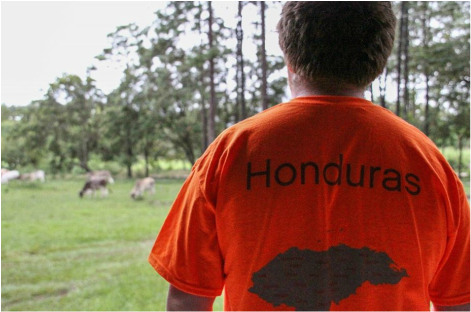 Tonight I went to dinner at the Saint Miguel house in the boy’s dormitory. The boys were all between the ages of 11 and 15. This was my second night in San Miguel because I enjoyed the night before so much. Before dinner I got jumped on and scratched and gave close to 300 piggyback rides. After everyone calmed down and dinner was minutes away, I was approached by a young boy named Osman Diaz. Osman showed me his schoolwork: art, geography, biology and Spanish were the subjects he proudly showed me before dinner was ready. For art class he had drawn geckos and birds and other small things like leaves and twigs. He drew cross sections of animal and plant cells for biology and labeled every part, your average worksheets with vocabulary and diagrams for geography, and whenever we got to an assignment of his he was suspiciously quick to cover up his grade – probably not his favorite subject. When we got to Spanish he pulled out a poem and prompted me to read it; seeing as I don’t speak or read Spanish I tried to get him to read it aloud. Finally I convinced him. When he began reading he was calm and clear. When we went on his voice began to crack and tears welled in his eyes, certain words carried a certain weight to them and his emotions began to take over. Five stanzas with four lines each on them and I have no idea what any of them meant, but as Osman’s attitude changed and his demeanor softened and became somber I could see that behind his teary eyes was more than just stage fright. He was sharing something with me that I could not understand but could feel and when he was finished we sat. Dinner was served and we went back to slap fights and soccer. I played goalie. Maggie Breen The Honduras 2015 Group Covenant
We trust that in our heartfelt desires, the things that bring us joy, we get to glimpse something of what God desires for us and how we might bring life to the world. In terms of the trip to Honduras we desire to: Getting Where We Want To Go Traveling as a group to visit, learn, and serve can be a thrilling, sometimes life-changing experience. Experiencing new things, encountering new people and their stories, is so very worthwhile. But as with all worthwhile things there can be challenges. Balancing our own needs with the needs of the group can make things hard. So this week the group traveling to Honduras met to draw up a covenant. Our hope is that this covenant will help us remember what we want and need both individually and as a group, and that it will help us to keep in mind the gifts we have received and the ways we can pass on these gifts to help the group gets where it wants to go. |
AuthorNews and updates related to our July, 2015 trip to NPH Honduras. Most recent posts are at the top. ArchivesCategories
All
|
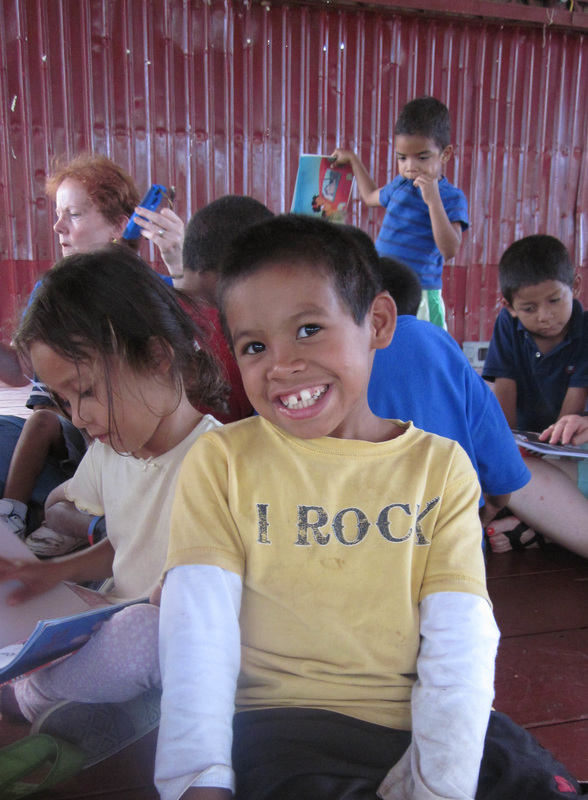
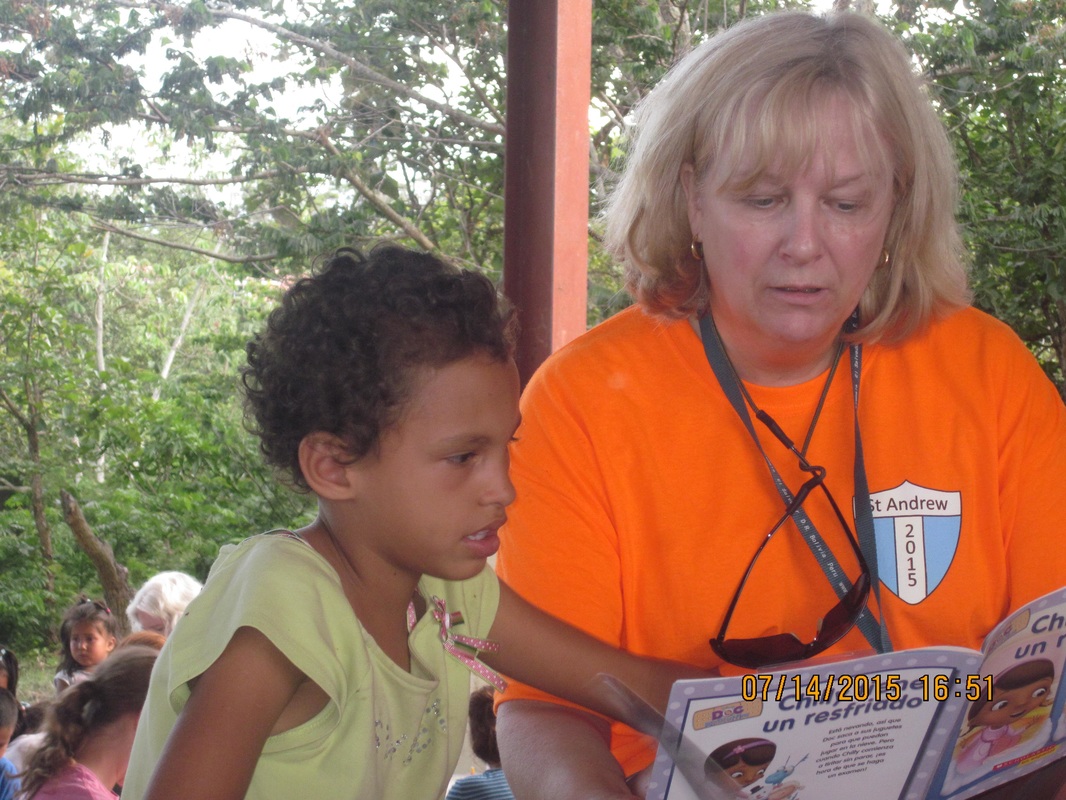
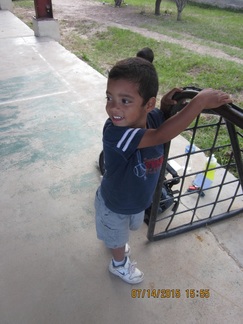
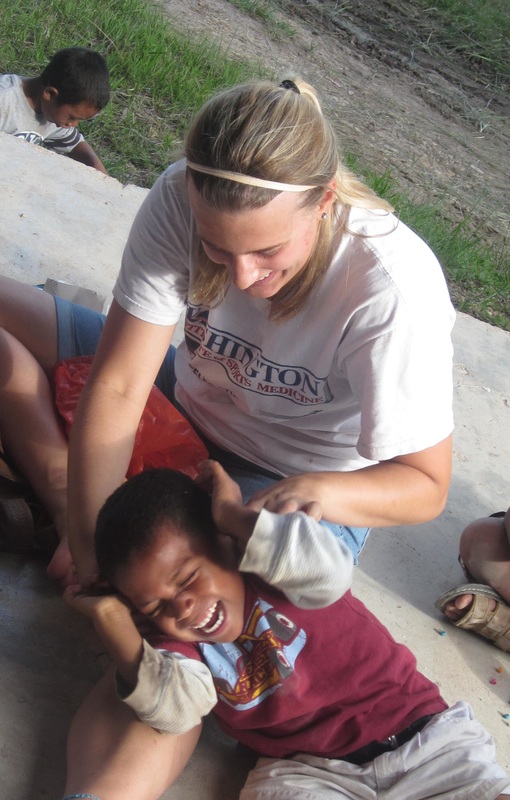
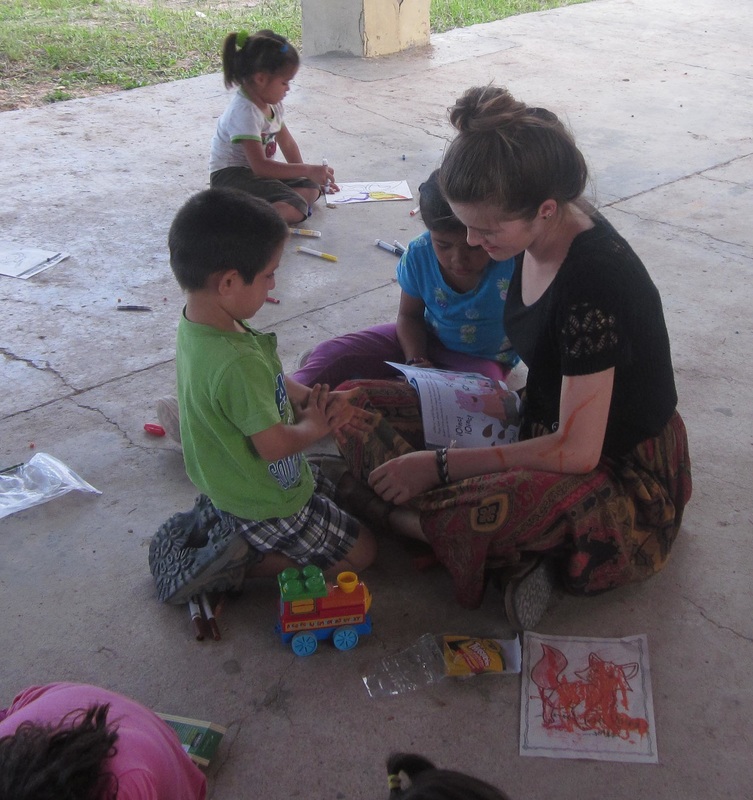
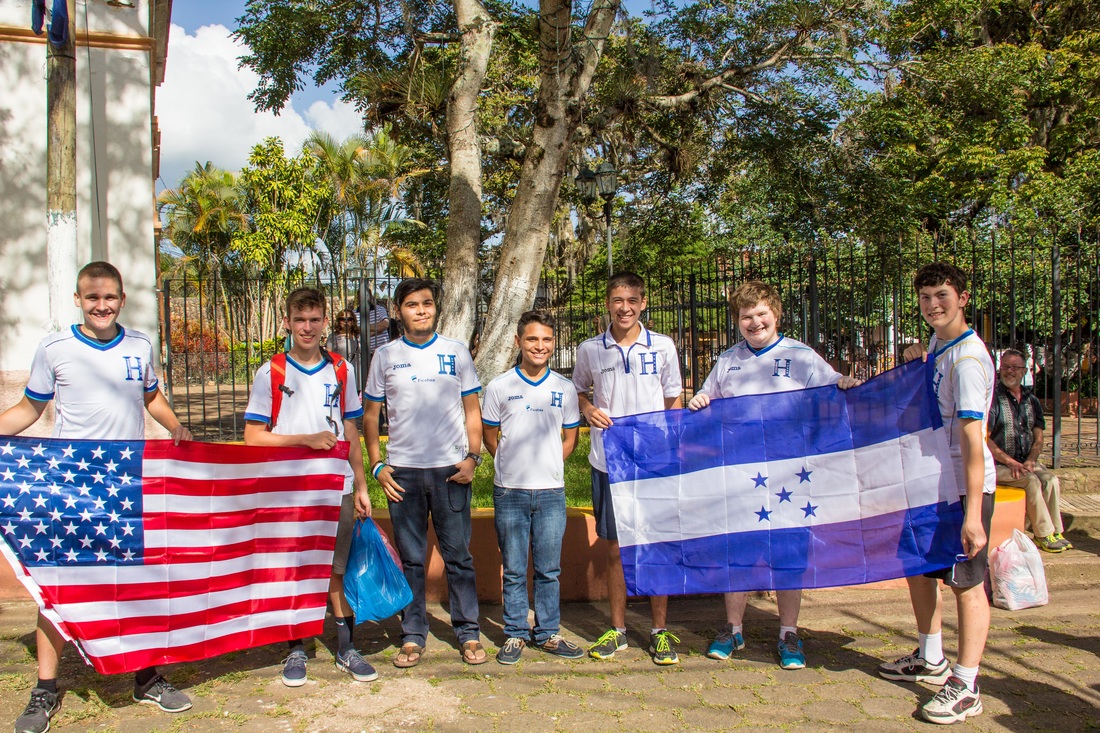
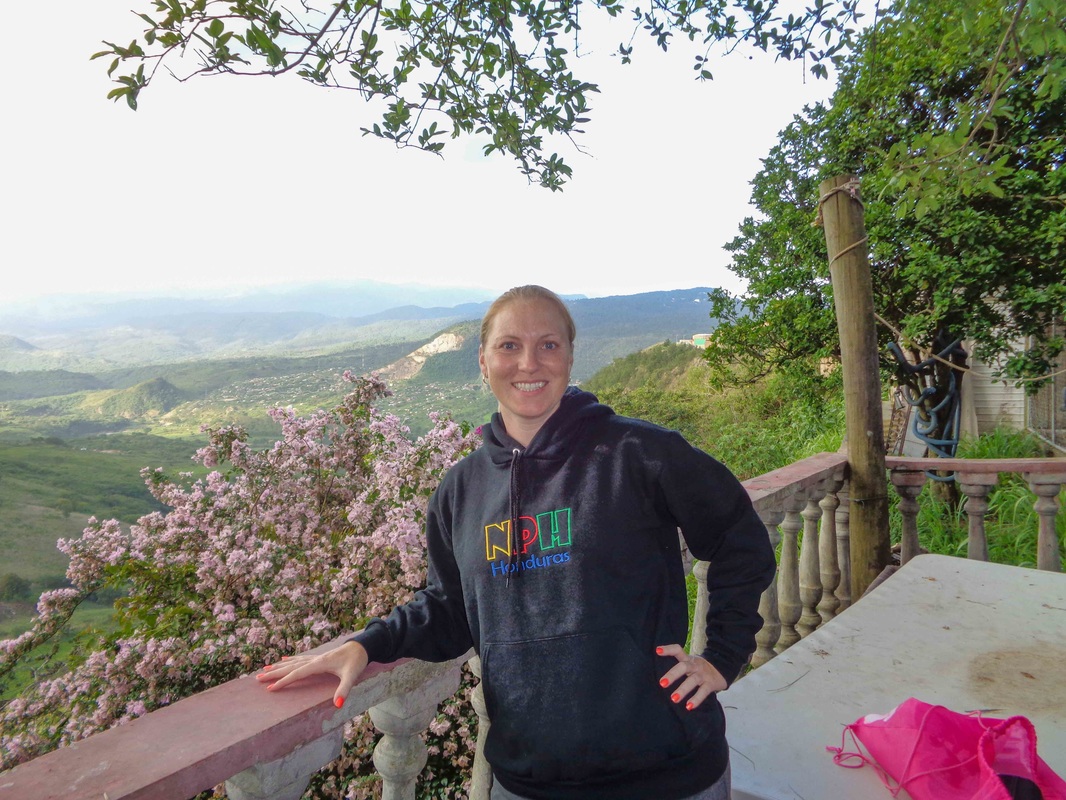
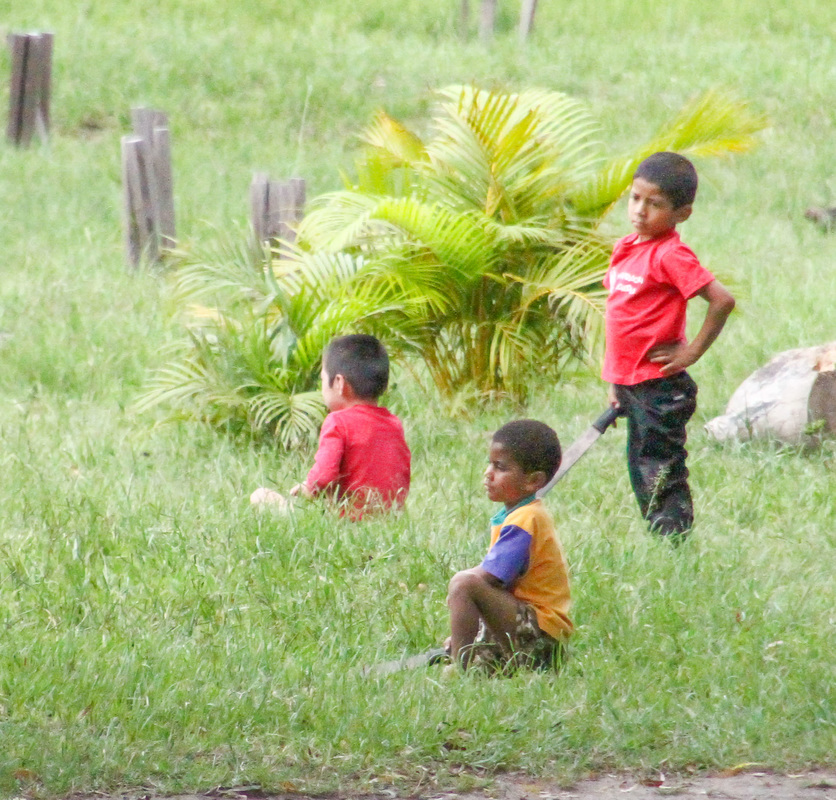
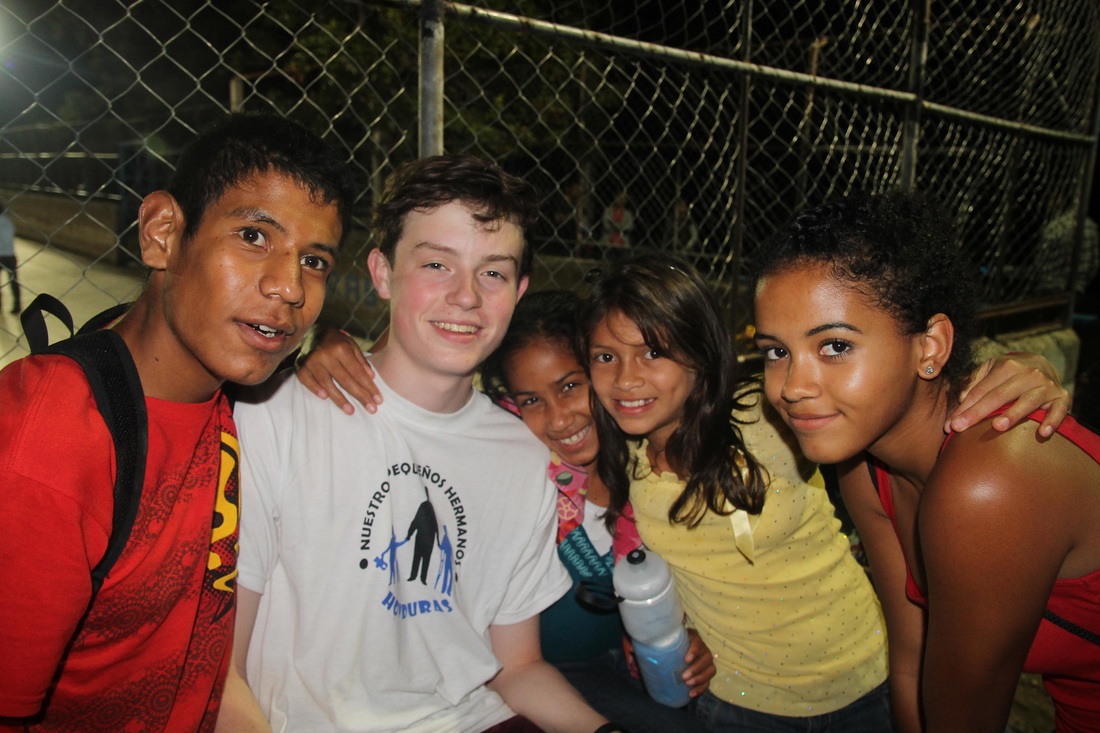
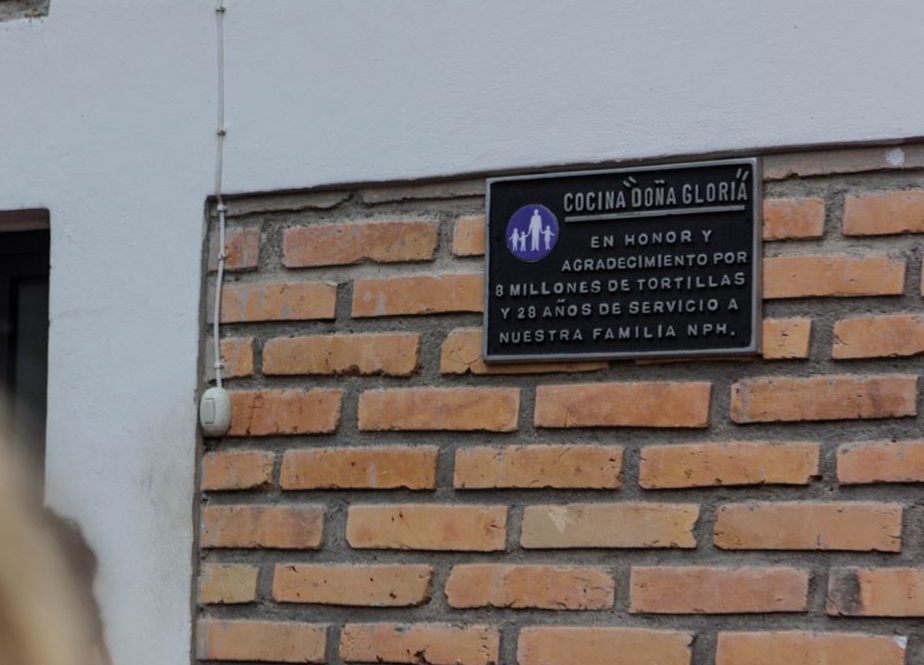
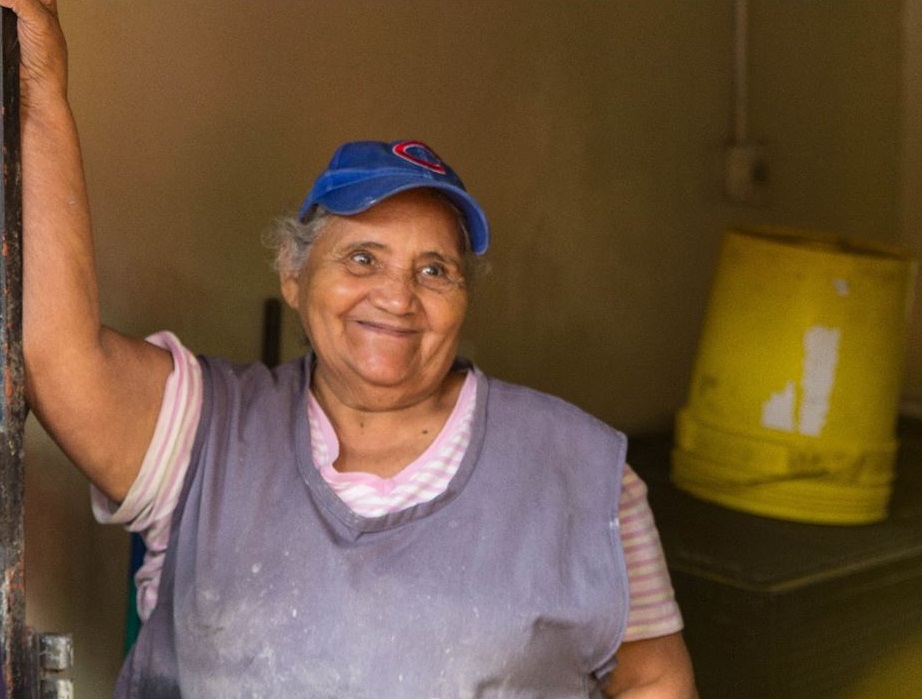
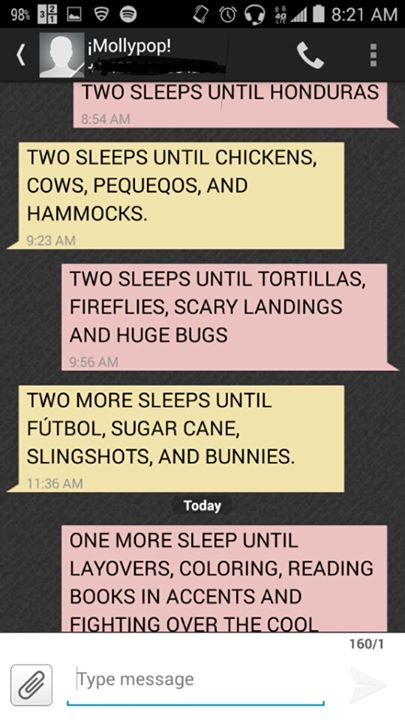
 RSS Feed
RSS Feed